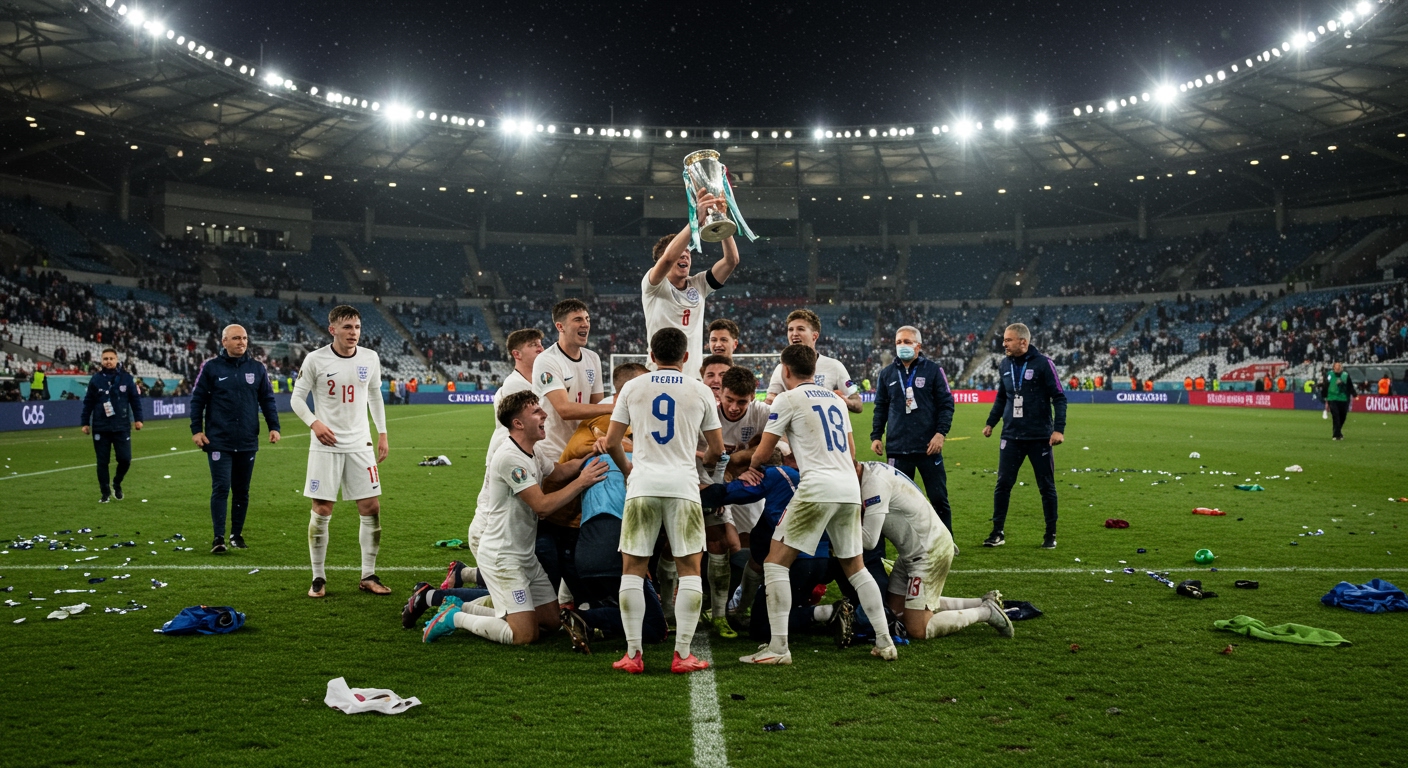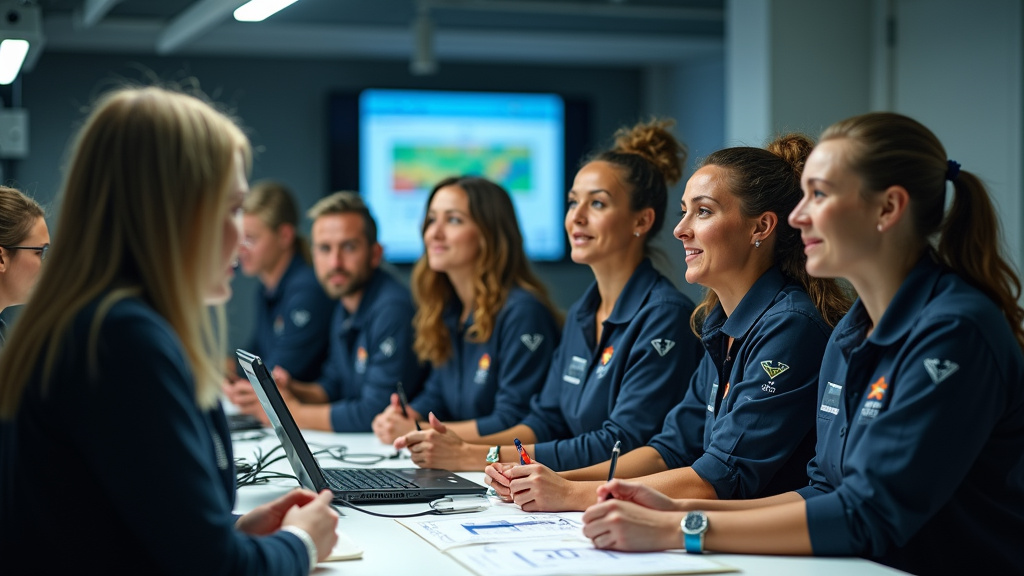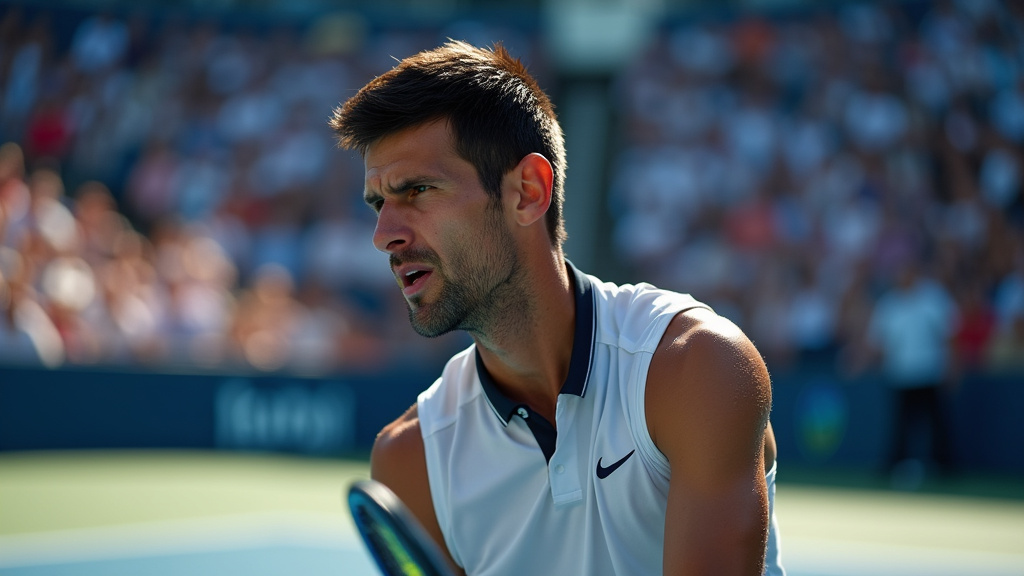Bratislava, Slovakia – England’s Under-21 national football team has secured a historic achievement, successfully defending their UEFA European Under-21 Championship title with a dramatic 3-2 extra-time victory over perennial rivals Germany.
The final, held in Bratislava, Slovakia, on Sunday evening, culminated in a tense and thrilling encounter that underscored the recent transformation within English football’s youth development pathways.
A Hard-Fought Final
The match itself was a testament to the competitive spirit of both nations. England, led by manager Lee Carsley, demonstrated resilience and tactical discipline throughout, ultimately prevailing after being pushed to the brink in extra-time. The decisive moment arrived late, with Jonathan Rowe scoring the winning goal that clinched the championship for the Young Lions.
The 3-2 scoreline in extra-time reflects a keenly contested battle, a fitting conclusion to a tournament showcasing Europe’s brightest young talents. England’s ability to find a winner in the additional period highlights the squad’s mental fortitude and physical conditioning.
Key Performers Honoured
Several English players distinguished themselves during the tournament and the final match. Midfielder James McAtee was rightfully recognised for his influential performance in the final, earning the prestigious Player of the Match award. His contribution was pivotal in navigating the high-pressure environment of a championship decider against a formidable German side.
The individual accolades did not end there for England. Harvey Elliott, who impressed throughout the competition with his creativity and impact from midfield, was awarded the Player of the Tournament title. Such recognition for key players underscores the depth of talent within the current Under-21 setup and their collective impact on the team’s success.
Defending the Crown
This victory is particularly significant as it marks the successful defence of the UEFA European Under-21 Championship title, which England also claimed in the previous edition held in 2023. Achieving back-to-back championships at this level is a rare feat and speaks volumes about the sustained quality and strategic planning implemented by the Football Association and the coaching staff, particularly under Lee Carsley.
The continuity of success from 2023 to the present underscores a consistent pipeline of talent and a successful development methodology. It moves beyond a single talented generation to suggest a more embedded structure for nurturing elite young players capable of performing under international pressure.
Experience Within the Squad
A key factor contributing to England’s success is the significant first-team experience already accumulated by players within the Under-21 squad. The roster boasts a wealth of talent currently playing at high levels of domestic and European football.
Notably, nine members of the championship-winning squad have already played Premier League football, the top tier of English football. This exposure to the intensity and demands of one of the world’s most competitive leagues provides these young players with invaluable experience that translates directly to international tournaments. Their ability to handle pressure, adapt to different tactical approaches, and perform consistently at a high level is undoubtedly honed by their involvement in the Premier League.
Furthermore, defender Charlie Cresswell is another example of the diverse experiences within the squad, having played in the top division of French football. Such varied exposure to different leagues and footballing cultures broadens the players’ tactical understanding and resilience, making them better-rounded athletes and competitors.
Underlining Transformation
The back-to-back UEFA European Under-21 Championship victories, culminating in this hard-fought win against Germany, serve as a powerful statement about the progress and transformation of English football’s youth structure over the past decade. The emphasis on technical development, tactical awareness, and providing young players with pathways to senior football is clearly yielding tangible results on the international stage.
Lee Carsley’s leadership has been crucial in moulding these individual talents into a cohesive and winning unit. His ability to manage a squad comprising players with varying levels of senior experience, integrating them effectively, and instilling a winning mentality has been paramount to this success. The style of play demonstrated throughout the tournament reflected a well-coached side capable of adapting to different opponents and scenarios.
Looking Ahead
The success in Bratislava is more than just winning a trophy; it is an affirmation of the potential residing within the current generation of English footballers. Many of these players will now set their sights on transitioning fully into senior international football, potentially forming the core of future England senior squads. The experience of winning major international tournaments at the youth level is invaluable preparation for the challenges ahead.
As England celebrates this latest triumph, the focus will inevitably turn to how this success can be sustained and how these young champions can continue their development. The victory against Germany in the UEFA European Under-21 Championship final is a significant marker of progress and a source of optimism for the future of English football.





